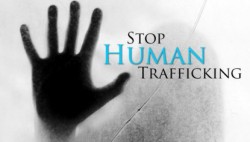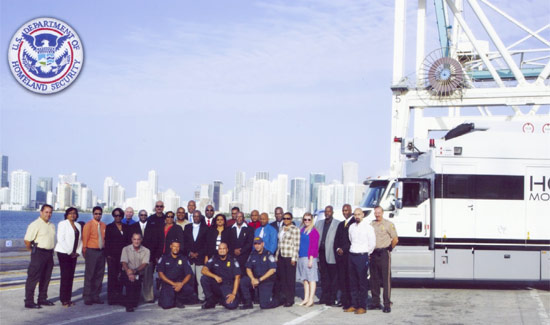 The United States Department of State has raised an eyebrow over the possibility of large scale human trafficking in The Bahamas.
The United States Department of State has raised an eyebrow over the possibility of large scale human trafficking in The Bahamas.
The State Department’s 2012 Trafficking in Persons Report classified The Bahamas on a “Tier 2 Watch List” for the second year in a row.
The report says the alleged lack of “freedom of movement” for Chinese worlers at a large construction site, and the fact that the government of The Bahamas has failed to prosecute even one human trafficking case are indicators that human trafficking may be taking place.
“Media outlets have reported that Chinese workers in a large-scale Chinese construction project in The Bahamas do not have freedom of movement – a human trafficking indicator,” the report said.
There are several “large scale” construction projects currently underway in The Bahamas that are using Chinese workers. Baha Mar is the largest, but officials there say the report can not be referring to them because their workers do have freedom of movement. Maybe so, but apparently Baha Mar’s Chinese workers do not like to move very much. There are supposedly thousands of Chinese workers and residents of Cable Beach say they almost never see any of them.
Representatives for the Chinese Embassy have yet to respond.
The State Department’s report described the Bahamas as “a destination, source, and transit country for men, women, and children subjected to forced labour and sex trafficking.”
Referring to the 30,000 Haitians, who mostly arrive in The Bahamas voluntarily, the report notes that many of them are subject to “forced labour, especially in domestic servitude and in the agriculture sector.”
“Experts also have raised concerns that some workers from Jamaica could be vulnerable to involuntary servitude,” the report stated.
The State Department report also mentioned that certain groups of immigrants were “especially vulnerable” to sex trafficking in the Bahamas. This may possibly be a reference to the activities of organized crime groups which import foreign citizens and force them into prostitution. Accusations have been made that there are several strip clubs in Nassau and the Family Islands which are involved in this activity.
“Local children engaging in sex with men” was also mentioned in the report. This is especially common among politicians and pastors who often receive sexual favours from children in exchange for basics such as food, transportation, or material goods.
It should be noted, however, that the people at the U.S. Embassy are not the brighest bulbs in the box. They continually fail to see that human trafficking is a big, big business in The Bahamas.
While realizing that, “The Government of The Bahamas does not comply fully with the minimum standards for the elimination of trafficking,” the report foolishly states that the government, “is making significant efforts to do so.”
Most Bahamians know that these attempts are merely a smokescreen. As usual, the Bahamas government has taken meaningless steps to thwart futher criticism but clearly has no intention of truly addressing the problem.
This is much the same as almost any other international agreement the Bahamas has ever entered into. The Government lies and scams its way through negotiations, pretending to be a little country trying its best. In reality, no effort is made whatsoever to address the problems the international community is focused on. Copyright laws and money laundering are two good examples.
The US government may be waking up however, as the report also notes that:
“Despite these efforts – most notably the establishment of a highlevel interagency committee and continued statements of commitment to address human trafficking – the government has not identified or assisted any victims of trafficking or initiated any forced labour or sex trafficking prosecutions; therefore, The Bahamas is placed on Tier 2 Watch List for a second consecutive year.”
The “pretend” committment to resolution on the part of the Bahamian government has been most apparent in copyright and intellectual property laws. The Bahamas has been a signatory of relevant treaties for years but has continually ignored the enforcement of laws that would actually prohibit the theft of intellectual property. This is why major movie studios and media outlets have blocked their content from being veiwed in The Bahamas. And why there are still counterfeit goods being sold under the counter at straw markets accross the country.
The State Department, attempting to avoid an international diplomatic incident, called the government’s March announcement of the establishment of a “working level interagency task force” a “positive development”. The task force which appears to be merely a smokescreen, is pretending to handle “specific allegations of human trafficking and a protocol to guide officials in handling trafficking cases.”
One could bet good money that the task force will produce no significant changes in the level of trafficking in The Bahamas.
The entire Trafficking in Persons (TIP) report can be read online at the State Department’s official website.


